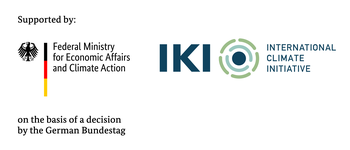COPA primarily supports countries from the Global South eligible for Official Development Assistance in creating effective greenhouse gas mitigation through ozone depleting substances (ODS) and hydrofluorocarbon (HFC) banks management. Partner countries receive access to technical and financial support to establish and further develop a regulatory framework and infrastructure to effectively address the global ODS and HFC banks problem. Countries are welcome to become members of the alliance and benefit from knowledge exchange and an international network of actors willing to jointly work on the sustainable management of ODS and HFCs. In the initial phase, COPA cooperates with China (Ministry of Ecology and Environment of the People’s Republic of China - Foreign Environmental Cooperation Office), Ghana (Ministry of Environment Science Technology and Innovation - Environmental Protection Agency), Mexico (Secretariat of Environment and Natural Resources of Mexico), Tunisia (Ministry of Environment of Tunisia) and Ecuador (Ministry of Production, Foreign Trade, Investment and Fisheries). COPA is working with the five countries to define country-specific commitments, develop project concepts and implement first pilot actions. The results and expertise can then be transferred and multiplied to other countries. COPA focuses on mitigation actions in metropolitan regions as ODS and HFC waste stocks mostly accumulate in densely populated areas.COPA PARTNER & MEMBER COUNTRIES
COPA COUNTRIES
Togo In Togo, the management of ODS and HFC banks operates primarily through an informal system. This system involves the collection, sorting, storage, and dismantling of materials. After these processes, the recovered metals are typically exported, while other products are often disposed of through open burning. These current practices of improper disposal can lead to severe environmental harm, including the release of toxic chemicals that contribute to ozone depletion and climate change. Additionally, the lack of proper handling and recycling methods poses health risks to workers and nearby communities. There are plans to set up an ODS/HFC collection system as part of an industrial recycling platform through a public-private partnership (PPP). This involves setting up a center in Lomé for the dismantling of cooling appliances at the end of their service life. The center will focus on the professional storage and recycling of old F-gases on the one hand and the recycling of plastics and metals contained in these old appliances on the other. This will minimize the impact on the environment and improve the recovery of valuable materials. UNDP is willing to support the partners to strengthen their systems for the reduction of ODS and HFCs banks emissions.
Please select a country:
Member
Activities
